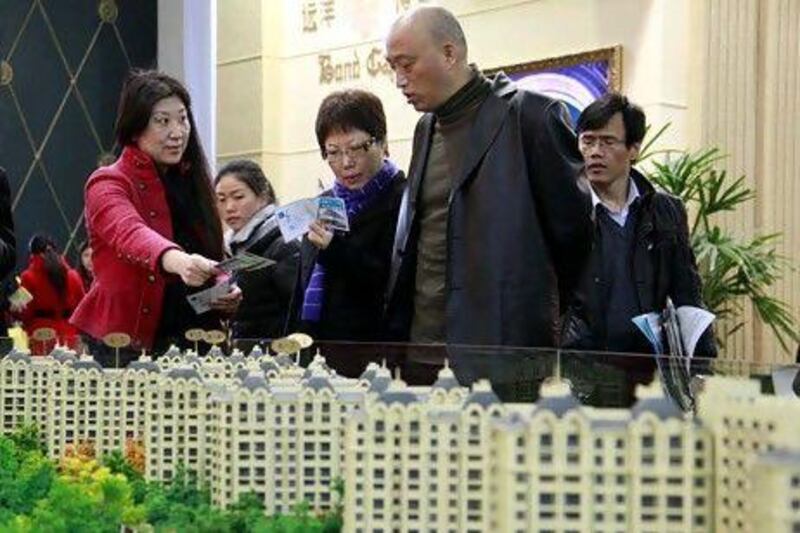Can China keep growing? It is a question often asked, and if the answer is to be yes, significant reforms are needed, says Nicholas Lardy, the author of the book Sustaining China's Economic Growth after the Global Financial Crisis.
While Wen Jiabao, China's premier, has set a more modest growth target this year of 7.5 per cent, the prospect of a more severe and sustained slowdown is real, says Mr Lardy, a senior fellow at the Peterson Institute for International Economics.
Concerns centre on residential property. Several factors suggest that a large-scale slowdown in the sector and knock-on effects for the wider economy are likely.
The driver of the vast increases in property prices of recent years has not been urbanisation, argues Mr Lardy, but multiple property purchases. Chinese people have few options as to where they invest their money, and with bank deposit rates poor and stocks often regarded as unattractive, savings have been sunk into property.
Nearly one fifth of households in Beijing, he noted during a recent talk, own two or more properties. Also, a survey found that 40 per cent of purchases were not by people who ended up living in the property.
China's investment in housing has been at levels seen in other markets only at their peak. In Spain in 2009, the figure reached just above 9 per cent of GDP - the same as China last year. The figure peaked at about 6 per cent in the United States in 2005, the same year it reached about 5 per cent in India.
"China is already extremely high in the proportion of investment that goes into residential property," says Mr Lardy.
In the US, the share of household wealth that went into property reached 30 per cent at its maximum in 2005, and has since fallen to about 25 per cent. In China it is now about 40 per cent.
Another warning sign is the fact that household debt relative to disposable income almost doubled between 2008 and last year.
"This is an extremely rapid increase in household debt, most of it mortgages," says Mr Lardy. "Household debt in China is very high for a country of this level of economic development."
In the Philippines and Indonesia, household debt as a proportion of household income is just one third or even a quarter of the figure in China.
"All these things suggest it's not likely residential property can continue to be the main economic driver in China," says Mr Lardy. "If you have a slowdown in property, you are likely to have a slowdown in economic growth."
A reform Mr Lardy sees as key to averting the risk of a slowdown is interest-rate liberalisation. Interest rates have, he says, been kept low as part of a wider policy of "financial repression" also involving high required reserve ratios.
This has all been aimed at keeping the yuan undervalued while ensuring inflation is under control.
If controls over interest rates are lifted, Mr Lardy says, the knock-on effects will be higher lending rates, more growth in the services sector, less growth in manufacturing, and an increase in wages as a share of GDP, which in turn will increase household consumption.
Mr Lardy notes that a move towards market-oriented interest rates has been included in China's two most recent five-year plans, yet little movement has been seen in that area.
China's consensus-based political system is often blamed for the failure to implement tough reforms. Could this change under Xi Jinping and Li Keqiang, the men likely to take over the presidency and premiership, respectively?
"It could. The case for reform is stronger," says Mr Lardy. "[The economy] cannot continue to depend on residential property. China doesn't have the headroom it had in 2008 to have a stimulus package."
twitter: Follow our breaking business news and retweet to your followers. Follow us






